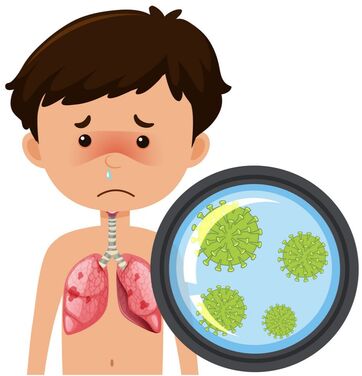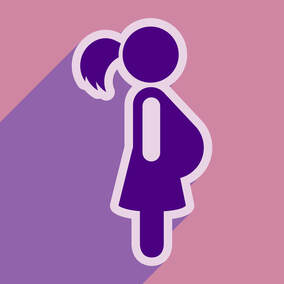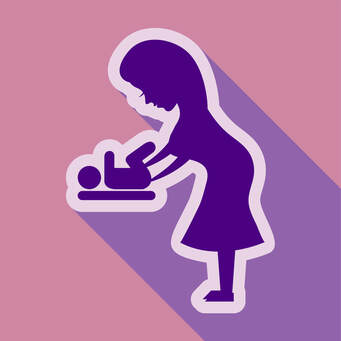|
COVID-19 is the infectious disease caused by the most recently discovered coronavirus. This new virus and disease were unknown before the outbreak began in Wuhan, China, in December 2019. (WHO) We know it can be stressful watching the news or checking your social media in these days of the COVID-19 pandemic, especially if you’re pregnant or have delivered a baby recently. Below please find the most updated information that our in-house doctor has collected from reputable global health sources on COVID-19 and pregnancy. We will update regularly as more information comes in.  First, for a good explainer about COVID-19, please see: FAQs's by WHO on COVID-19 Some general questions about COVID-19: Q: How does COVID-19 spread? A: People can catch COVID-19 from others who have the virus. The disease can spread from person to person through small droplets from the nose or mouth which are spread when the infected person coughs/sneezes. The droplets land on objects and surfaces around the person. Other people then catch COVID-19 by touching these objects or surfaces, then touching their eyes, nose or mouth. (WHO) Q: Are antibiotics effective in preventing or treating COVID-19? A: No. Antibiotics do not work against viruses, they only work on bacterial infections. Antibiotics should not be used as means of prevention or treatment of COVID-19. They should only be used as directed by a physician to treat a bacterial infection. (WHO) Q: Is there a vaccine, drug or treatment for COVID-19? A: Not yet. To date, there is no vaccine and no specific antiviral medicine to prevent or treat COVID-2019. However, those affected should receive care to relieve symptoms. People with serious illness should be hospitalized. Most patients recover thanks to supportive care. (WHO) Q: How long is the incubation period for COVID-19? A: The “incubation period” means the time between catching the virus and beginning to have symptoms of the disease. Most estimates of the incubation period for COVID-19 range from 1-14 days, most commonly around five days. These estimates will be updated as more data become available. (WHO) Q: What shouldn’t you do? A: The following measures ARE NOT effective against COVID-19 and can be harmful:
Preparing yourself for a clinic consultation:FOR PREGNANT WOMEN:

For Pregnant women:
Q: What effect does COVID-19 have on pregnant women? A: As it relates to pregnancy, there are currently no data suggesting an increased risk of miscarriage or early pregnancy loss in relation to COVID-19. (https://www.ncbi.nlm.nih.gov/pmc/articles/PMC3320293/) Pregnant women do not appear to be more severely unwell if they develop COVID-19 than the general population.(Published by RCOG - UK - March 26, 2020) Q: What effect will COVID-19 have on my baby if I am diagnosed with the infection? A: It is unlikely that if you have the virus it will cause abnormalities in your baby.(Published by RCOG - UK - March 26, 2020) Q: What can I do to reduce my risk of catching COVID-19? A: The best way to prevent illness is to avoid being exposed to this virus.
Q: What should I do if I think I may have COVID-19 or been exposed? A: If you are pregnant and you have either:
(Published by RCOG - UK - March 26, 2020) Q: Could I pass COVID-19 to my baby? A: As this is a new virus, there is limited evidence about managing women with coronavirus infection in women who have just given birth; however, there are no reports of women diagnosed with coronavirus during the third trimester of pregnancy having passed the virus to their babies while in the womb. (Published by RCOG - UK - March 26, 2020) LACTATING/BREASTFEEDING WOMEN:

Much is unknown about how COVID-19 is spread. Person-to-person spread is thought to occur mainly via respiratory droplets produced when an infected person coughs or sneezes, similar to how influenza (flu) and other respiratory pathogens spread.
Q: Can COVID-19 be spread through breast milk? A: In limited studies on women with COVID-19 and another coronavirus infection, Severe Acute Respiratory Syndrome (SARS-CoV), the virus has not been detected in breast milk; however we do not know whether mothers with COVID-19 can transmit the virus via breast milk. (CDC Guidelines) Q: What are the precautions for feeding the baby? A: For women wishing to breastfeed, precautions should be taken to limit viral spread to the baby: • Hand washing before touching the baby, breast pump or bottles • Avoiding coughing or sneezing on the baby while feeding at the breast • Considering wearing a face mask while breastfeeding, if available • Following recommendations for pump cleaning after each use • Considering asking someone who is well to feed expressed milk to the baby (Published by RCOG - UK - March 26, 2020) FOR DOCTORS/CLINICIANS:
Doctors/Clinicians click here for latest resources For those in India who are feeling sick, please follow the guidelines listed here: https://www.mohfw.gov.in/
Here are the Central Helpline phone numbers for COVID-19 by State/Union Territory: https://www.mohfw.gov.in/pdf/coronvavirushelplinenumber.pdf
2 Comments
|
|
© COPYRIGHT 2020. ALL RIGHTS RESERVED.

